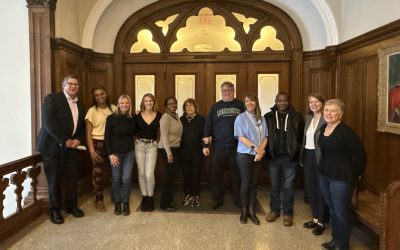Words of inspiration and vision from the Director of the Center for Global Education
March 2025 – I was trained as a historian and studied with a social historian of women in the United States, so my interpretation of this month’s observances is influenced by this academic grounding, as well as my own lived experience. People might perceive a common “sisterhood” between all women that transcends other identities, but we must recognize that each person has their own unique perspective stemming from their experiences. There are certainly common experiences women have with each other, particularly related to gender roles and reproduction in the U.S. Not surprisingly, I read up on the origin of Women’s History Month in the U.S. to refresh my memory. (Yes, I went to Wikipedia…) I encourage everyone to do that as well, so you can understand Women’s History Month’s roots in socialist activism, labor movements, and feminism that demanded humane policies and equal rights for women.
I am inspired by all women who challenge legal and societal restrictions placed on them based on the prevailing understanding of gender roles that position them as the “second sex.” Historically, in Western cultures, such restrictions stemmed from the assumption that women were incapable of operating as individuals and lacked independent legal status because of their perceived weakness due to the role of females in the reproduction of human societies. Thankfully many of those impediments to women’s rights were eliminated in the U.S. by the end of the 20th century, but these restrictions are still present in other parts of the globe where some cultures, particularly those governed by extremist religious authorities, continue to deprive women of life, liberty, and property. We still see examples of women victimized during war, locked into poverty due to, among other things, lack of reproductive health resources, and prevented from gaining an education. I believe in the dignity of the individual and the right to self-determine their own path—especially women, who are historically a marginalized group deprived of autonomy and agency.
For anyone looking for reading recommendations, I suggest following Rebecca Solnit, a historian who has written about women in American culture, the habit of some men to “mansplain” (Men Explain Things to Me), and how she found her voice as a writer and her identity as a feminist in the face of misogyny and a culture that prefers women to be silent (Recollections of My Nonexistence). If you’re looking for a hero, see Sophia Scholl, a young German woman who defied the Nazi state through nonviolent action and was executed for having the temerity to criticize the regime.



